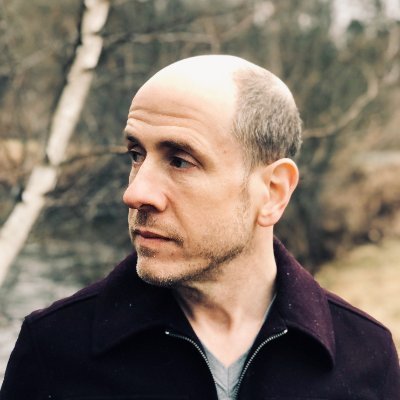Interview with author Jeff Sharlet
In this interview, we discuss our shared recollections of Uganda’s Anti-Homosexuality Bill 2009, the Netflix documentary The Family, liberty of conscience, and evangelicals in relationship to Donald Trump.
This is second in a series of interviews marking 15 years of blogging. I started blogging in July 2005. The first interview with Michael Coulter is here.
Uganda’s Anti-Homosexuality Bill 2009
On March 2, 2009 I posted a article about an ex-gay conference in Kampala, Uganda. Three Americans, Scott Lively, Don Schmierer, and Caleb Brundidge, had been invited by Stephen Langa of the Family Life Network to speak on the topic of homosexuality. Scott Lively told the crowd that gays were behind the Nazi takeover of Germany and subsequent Holocaust. Don Schmierer told them that homosexuals were disturbed by poor parenting and that they needed therapy, and Caleb Brundidge, a client of reparative therapist Richard Cohen was there to show that the ex-gay therapy worked.
That was the first of hundreds of articles about Uganda and the effort of that nation’s Parliament to make homosexuality a capital offense (The Anti-Homosexuality Bill 2009). I don’t think it is too far fetched to say that Box Turtle Bulletin and this blog became key thorns in the side of Ugandan and American proponents of the bill. Jim Burroway and I (incidentally both originally from Portsmouth, OH) wrote nearly every day about some aspect of the bill and kept the story alive.
Because of my strong opposition to the bill and the kindness of Bob Hunter (as well as other Fellowship members), I attended the National Prayer Breakfast in 2010. There, I interviewed Fellowship Foundation leader Doug Coe. That was one of a handful of interviews he granted over the course of his life. A summary of it was published in Christianity Today later that year. Coe put the Fellowship on record as opposing the bill in Uganda.
When the Ugandan members of the Prayer Breakfast movement learned of American opposition, they felt betrayed by Coe and the Americans. They persisted with their efforts to pass the bill. As Jeff and I discuss in the interview above, the Ugandan members seemed to believe American evangelicals were afraid to really speak their minds. The Ugandan proponents of the bill seemed convinced that American Christians really supported their efforts, and it was their Christian duty to set a tone the world could follow.
Despite the Ugandan’s belief, I don’t believe the American Fellowship supported the bill. At the time (December, 2009), Jeff wrote a guest post for my blog which outlined his belief that the American Fellowship opposed it. In my rare interview with Doug Coe, he made it clear that he and the Fellowship opposed the bill and criminalization for homosexuality anywhere. Furthermore, at the National Prayer Breakfast, both Barack Obama and Hillary Clinton spoke directly to the Ugandan people and by name opposed the Anti-Homosexuality Bill. I don’t think the opposition could get any clearer than that.
I was in the African suite watching Obama’s and Clinton’s speeches on television when they condemned the bill at the 2010 National Prayer Breakfast. It was silent in the suite as the African delegation watched. Afterwards, some were stunned, some were angry. Some still believed that some Americans had to say those things in public, but may privately support them. However, they could not deny that the American Fellowship opposed the bill.
Through years of parliamentary maneuvering, the bill moved and then stalled. Sessions ended without action, but finally it passed at the end of 2013 session. The President of Uganda Yoweri Museveni proclaimed that he would not sign the bill if scientists could convince him that being gay was innate. He claimed to want to know if being gay was a choice.
At that point, at the request of others lobbying against the bill, Jack Drescher and I wrote a letter summarizing the research on sexual orientation in layman’s terms. The letter was signed by over 200 scholars and researchers from all over the world. Museveni acknowledge the effort but also convened his own panel of “experts.” They returned a letter which allowed him to sign the bill.
In August 2014, the bill was struck down as unconstitutional by Uganda’s Constitutional court due to the fact that the Parliament did not have a quorum in place when the bill was passed. A five year story of ups and downs came to an end with that decision.
Jeff Sharlet
Jeff and I became friends as we compared notes over what American interests and influences might be at work in this Ugandan mess. As I noted in the interview, he went to Uganda on one occasion (I think he asked me to go along but I can’t be sure of my recollection on that). His report of that trip was a lengthy write up in Harper’s.
In the interview, we discussed the background of the Netflix documentary, The Family. I had the good fortune to be included in three of the five episodes of that series.
Jeff has an inspiring sense of fairness and is a captivating writer. I don’t know of anyone outside of Uganda who worked harder to expose the truth relating to the Anti-Homosexuality Bill than Jeff. I am grateful and humbled by the kind and overly generous remarks from him in this interview. Thanks to Jeff for doing it. I hope you benefit from our discussion as much as I did.
Additional Reading
Scientific Consensus Statement
History of Uganda’s Anti-Gay Bill – NPR
My Salon series about a Nevada church who dropped support of a Uganda missionary over the bill
Straight Man’s Burden – Harpers
The Bill Inspired by American Evangelicals – The Atlantic
All of my post about the Fellowship Foundation (aka The Family) and the National Prayer Breakfast
All 15 Years of Blogging Interviews
Image: Jeff Sharlet’s Twitter Page

